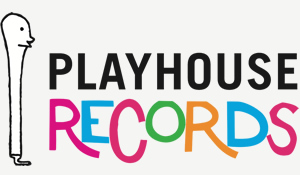The Mayor of Flumdiddle
By Naomi Glauberman
This article originally appeared in the Sunday L.A. Times, 5/19/96
Stooping over, Jim Copp pries open the reluctant brass clamps of a green trunk in his garage. The contents provide a glimpse into the origins of Agnes Mouthwash, Bradley the Bottle, Miss Goggins, Messy Bess and numerous others. From 1958 to 1971, Copp - with the help of his friend Ed Brown - wrote, performed, produced and distributed nine children's records, with such fabulous titles as "East of Flumdiddle", "Gumdrop Follies" and "Sea of Glup", that won rave reviews from such publications as the New Yorker and Saturday Review.
Wearing a long-sleeved, navy-blue polo shirt and gray flannel slacks, Copp is tall and trim. He rummages through the trunk - filled with reel-to-reel tapes in their original plaid boxes and piles of yellow paper thick with annotations - and pulls out one of the stacks. Page after page delineates how Copp, equipped only with a microphone and three Ampex tape recorders, created his remarkably complex stories. He points out a long list of numbers, each signifying a different take of a malevolent laugh - done over and over again until Copp was satisfied.
The stories depict an unpredictable, literate, occasionally dark world where tin pans adopt one-inch-tall daughters, neglected dolls fly to the moon and school principals disguise themselves as gorillas. Running from two to 11 minutes, the tales are narrated by Copp in his classic baritone and embellished by scores of voices (performed by Copp and Brown) and an assortment of unexpected instruments - pump organs, kazoos, autoharps, celestes and bongo drums (all played by Copp). The records were sold in upscale stores such as F.A.O. Schwarz, Bloomingdale's and I. Magnin. Although anything could (and did) happen on Copp's records, in the garage the creative chaos is neatly contained on shelves and in boxes. One wall is lined with records, cassettes and CD's. Also stashed away are the mementos of Copp's earlier careers as a New York nightclub comedian (he shared bills with Lena Horne and Billie Holiday) and as a society columnist for the Los Angeles Times in the early '50's.
Copp, who is credited with inventing his own form of multitrack recording, says he "didn't know how anyone made records. I was fascinated by the tape recorder, and I began to realize that these crazy voices were kind of funny, so I began writing stories and recording them."
After Brown's death in 1978, Copp pretty much closed up shop. In 1991, Ted Leyhe, a videographer who spent a good part of his childhood in Oshkosh, Wis., wearing out his Jim Copp records, found a listing for Playhouse Records, the company that Copp and Brown had formed, and dialed the Los Angeles number. Leyhe was astounded when the familiar voice of Copp himself answered the phone. The two eventually became friends and partners. The newly revitalized Playhouse Records now has an 800 number and has issued two CD anthologies as well as cassettes of the nine original records. The phone at Copp's house rings almost daily with now grown-up fans. "They say they're ordering them for their children", Copp says, "but they're really for themselves."

